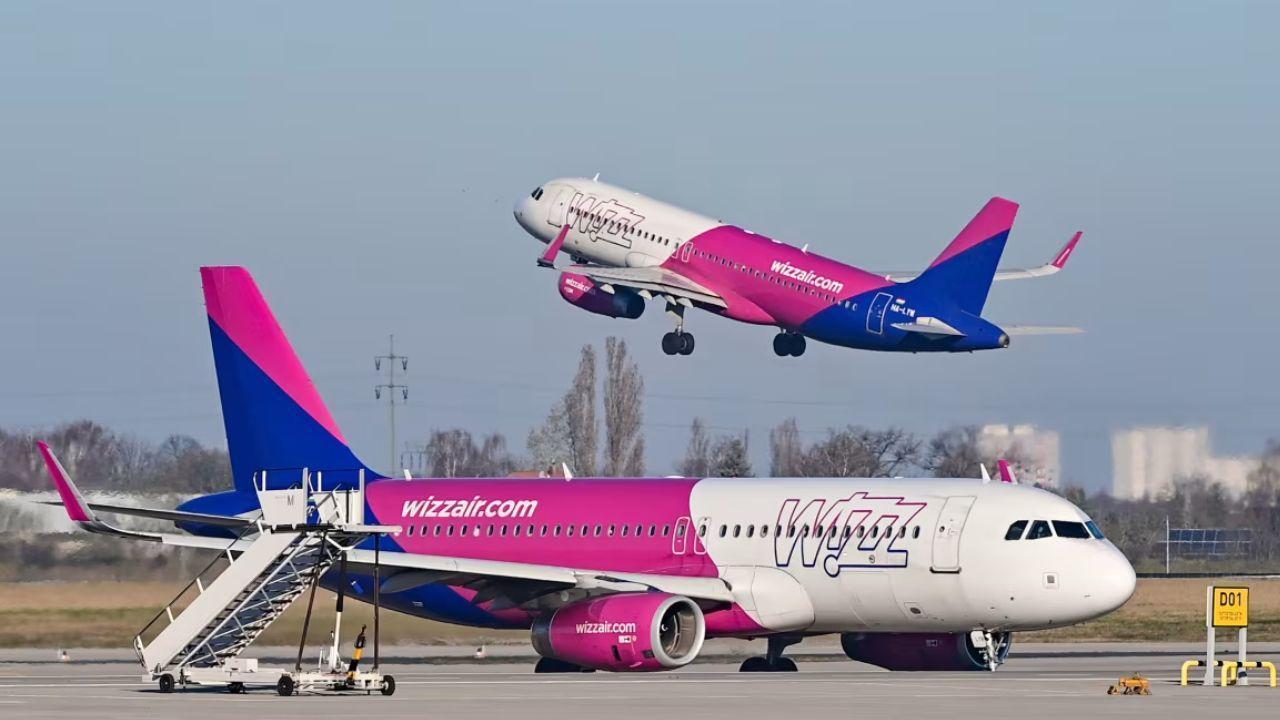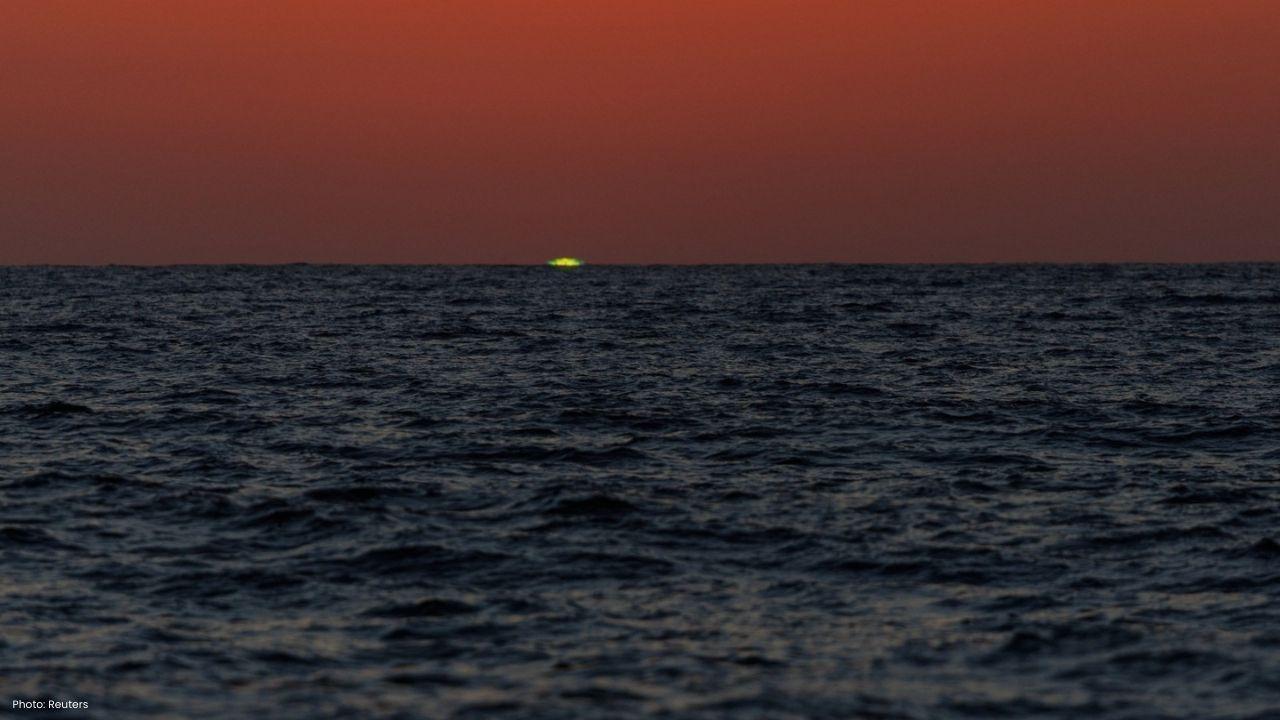
Post by : Mariam Al-Faris
Photo: AP
Wizz Air has taken a major decision to stop operations in Abu Dhabi, with all flights from its Abu Dhabi arm halting on 1 September. This marks its full withdrawal from Wizz Air Abu Dhabi, a venture it began in 2020 in partnership with the Abu Dhabi Developmental Holding Company. The airline cited engine reliability issues in intense heat, regulatory challenges, and Middle East geopolitical complications as core reasons behind this move.
CEO Admits It Was a Tough Call
Chief Executive József Váradi described the move as “difficult” but necessary given current conditions. He pointed to the airline’s ultra-low-cost model and stressed that sustaining it in Abu Dhabi has become impossible. The airline faced engine troubles, supply difficulties, unpredictable airspace, weak consumer demand, and limits on market access. These factors made profit and reliable operations untenable—unlike their well-managed European sectors.
Engine Problems in Desert Conditions
Wizz Air Abu Dhabi operated Airbus A321 and A321neo aircraft powered by Pratt & Whitney PW1100G and IAE V2500 engines. However, the harsh Middle Eastern heat affected engine reliability. The airline experienced frequent disruptions, increased maintenance needs, and delayed flights. These issues contrasted sharply with their European routes, where performance remained solid. Wizz concluded that its planes could not consistently meet schedules under desert conditions.
Regional Turmoil Disrupts Operations
Beyond technical troubles, the airline faced regional unrest and airspace closures tied to Middle East conflicts. These disruptions often forced route changes or cancellations, undermining consumers’ confidence in booking Wizz flights from Abu Dhabi. According to Wizz, such instability drained demand. Monitoring rapidly shifting flight permissions became costly. For a low-cost airline that thrives on predictable, volume-based operations, these risks undermined the model.
Regulatory Barriers Holding Back Growth
Wizz Air faced regulatory limits that prevented expansion of its Abu Dhabi network. Eager to expand to the Gulf, Europe, or Central Asia, the airline found that licensing, flight rights, and bilateral agreements blocked its plans. These constraints kept growth ambitions in check and limited fleet deployment. As a result, Wizz said it could not scale operations or tap into the markets it had hoped to serve.
Why Europe Is Wizz’s Safe Focus
Wizz’s solution is to refocus on Europe, especially Central and Eastern Europe, including the UK, Italy, and Austria. These markets offer better stability, regulatory clarity, and profitable route networks. CEO Váradi emphasized that Europe remains the carrier’s strength, with reliable operations and strong cost control. The strategic shift aims to deepen presence there, reduce risks, and protect shareholder returns.
Market Reaction and Shareholder Response
Wizz Air’s announcement prompted a modest 1.5% stock rise on the London Stock Exchange, signaling investor approval. Yet, the share price is still around 62% lower than two years ago, reflecting investor concern over cost inflation and engine reliability issues. The market sees this move as one toward greater financial discipline after a fraught expansion.
From Ambitious Launch to Abrupt Exit
When Wizz Air Abu Dhabi launched in 2020, it had big plans: a 100-aircraft fleet over 15 years, and a network serving Europe, the Gulf, and Asia. The airline benefited from post-COVID UAE–Israel flight openings. However, the combination of engine failures, market interruptions, airspace closures, and flat passenger demand derailed those ambitions. Ultimately, the region proved to be logistically challenging for Wizz’s model.
Lessons Learned from the Tropics
Wizz Air Abu Dhabi’s brief life emphasises the difficulty for low cost carriers in desert climates. Desert regions bring higher wear on aircraft, fluctuating airspace conditions, and geopolitical tensions that disrupt routes. Even international investors learned that ultra-low-cost models rely on stable, predictable markets and operational environments—something the Abu Dhabi venture lacked.
What’s Next for Wizz and Customers
Operations will cease on 1 September, and Wizz has pledged refunds or rebookings for affected passengers. Aircraft will either return to Europe or be reallocated across other fleets. Wizz has confirmed it will continue flights through its non-Abu Dhabi subsidiaries. With this final departure, Wizz formally closes its Gulf chapter and focuses on its European network.
Broader Company Strategy Shifts
This exit fits a wider corporate strategy to tighten investment and ensure operational robustness. For airlines, the pressure to control margins, avoid disruption, and satisfy regulators is intense. Wizz’s choice shows how shifting to stable regions is essential for ultra-low-cost carriers. While bold, the UAE experiment proved too risky and costly relative to return.
Implications for Budget Airlines
Wizz Air’s pullback offers a case study for other similar airlines considering expansion into challenging regions. Their experience underlines the need for engine adaptability, political risk assessment, and clear regulatory pathways. Cold-starting a low-cost venture in desert environments requires heavy due diligence. The model only works with capable engines and stable bilateral agreements.
Wizz Air’s withdrawal from Abu Dhabi reflects a major strategic recalibration. The venture was marred by heat-induced engine failures, geopolitical unpredictability, and regulatory roadblocks. Wizz will now repurpose those resources to strengthen its European backbone. Ultimately, this shows the airline will favour consistent profitability over ambitious geopolitical expansion. The Abu Dhabi chapter closes; Wizz’s future will now be shaped by lessons learned and renewed focus.










Mattel Revives Masters of the Universe Toys Ahead of Film Launch
Mattel reintroduces Masters of the Universe action figures in sync with a new movie, reigniting pass

China Carries Out Executions of 11 Ming Family Members for Myanmar Scams
China has executed 11 Ming family members for orchestrating extensive scams and illegal gambling ope

US Issues Urgent Warning to Iran Amid Military Buildup in Gulf Region
As US military presence increases, Trump urges Iran to negotiate on nuclear program and warns of str

Copper Prices Reach Historical Heights Amid Global Metal Surge
Copper prices peak as geopolitical issues and a weak dollar fuel demand, initiating a sweeping rise

New Zealand Claims Victory Over India by 50 Runs in T20 Match
New Zealand defeated India by 50 runs in the fourth T20I, keeping their hopes alive in the series de

BTS Tour Demand Surges: Mexico Requests More Concerts
Mexico's President seeks more BTS concerts due to overwhelming ticket demand as fans rush to secure